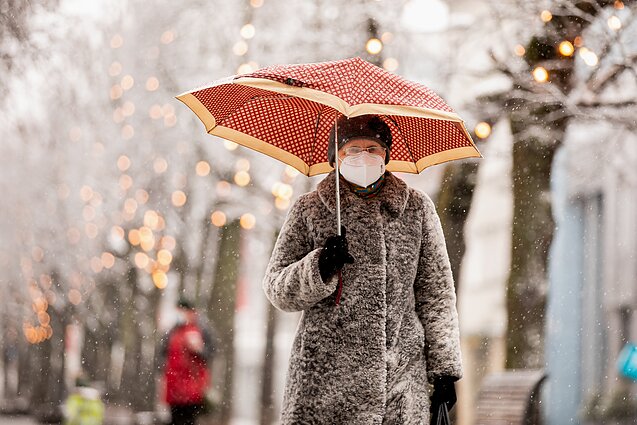
COVID-19 Update
Lithuania registered 721 new coronavirus infections and 12 deaths from Covid-19 on February 4. The coronavirus-related death toll now stands at 2,885. In all, 184,948 people have tested positive for Covid-19 in Lithuania since the start of the pandemic. The country currently has 45,753 active cases and 133,994 recoveries. As of today, 75,804 people in Lithuania have received their first coronavirus vaccine shots and 30,241 have received the second vaccinations.
Latvia has overtaken Lithuania as the worst-affected Baltic country after its 14-day infection rate jumped to 550 cases per 100,000 people. On February 4, the number stood at 533 in Lithuania and 518 in Estonia, according to the European Centre for Disease Prevention and Control.
The number of deaths per 1 million people remained highest in Lithuania, 127, followed by 113 in Latvia and 64 in Estonia. In December, Lithuania was the worst affected country in the world and in mid-January, had the highest death rate in the European Union. A lockdown was introduced in Lithuania on December 16 and was later extended until March.
Will Action Be Taken Against Russia?
The foreign ministers of Estonia, Latvia, and Lithuania have called on the international community to take action against the Russian government in response to detentions of protesters and journalists. In a joint letter addressed to the Organization for Security and Co-operation in Europe (OSCE) and the Council of Europe, the Baltic ministers expressed alarm at the growing repression of human rights defenders, civil society and the media in Russia, and called for an investigation into human rights violations.
The foreign ministers also noted that the European Court of Human Rights has ruled that Russia’s previous arrests of Alexei Navalny were arbitrary and politically motivated. Reports by independent Russian media outlets show that over 5,000 people, including more than 90 journalists, were arrested in peaceful demonstrations across Russia on January 31 alone, according to the Lithuanian Foreign Ministry.
Fintech Move to Lithuania
Several large financial technology (“fintech”) companies in London, England, have announced plans to relocate to Lithuania due to Brexit, according to the Fintech Magazine. “Outside of the UK, Lithuania has the second largest fintech hub in Europe,” according to Stefano Vaccino, founder of one such company, Yapily. Currently, several large firms including Revolut, Curve, and Yapily have already declared they will create new offices in Lithuania. Between 2019 and 2020, Lithuania’s fintech sector increased by 24%, mostly due to the broad inclusivity and ease of business, according to the magazine. Brexit ramifications appear to be the primary motivator for London’s notable players to look elsewhere for a foothold in the larger EU market.
Chinese Scanners Blocked
China’s embassy in Lithuania reacted to the country’s decision to block a contract for Nuctech X-ray scanners at airports over national security fears. “The safety and reliability of Nuctech equipment is endorsed worldwide,” the embassy said in a written comment, adding that “it will be a loss to Lithuania” and “market fact will prove it”. Last week, the Lithuanian government decided to block the contract for X-ray baggage scanning equipment at the country’s three international airports, saying that the data would be available to Chinese intelligence and security services under Chinese law. Lithuania’s decision was later welcomed by the US ambassador. “I welcome the Lithuanian government taking this step to protect Lithuania’s national security and critical infrastructure,” Ambassador Robert Gilchrist said in a comment to the Baltic News Service.
Lithuania’s intelligence services warned last year that, “China’s pursuit of technological advantage and its penetrating investment activities increase the vulnerability of other states and pose the risk of losing control over the critical infrastructure”.
With news from LRT.lt





























